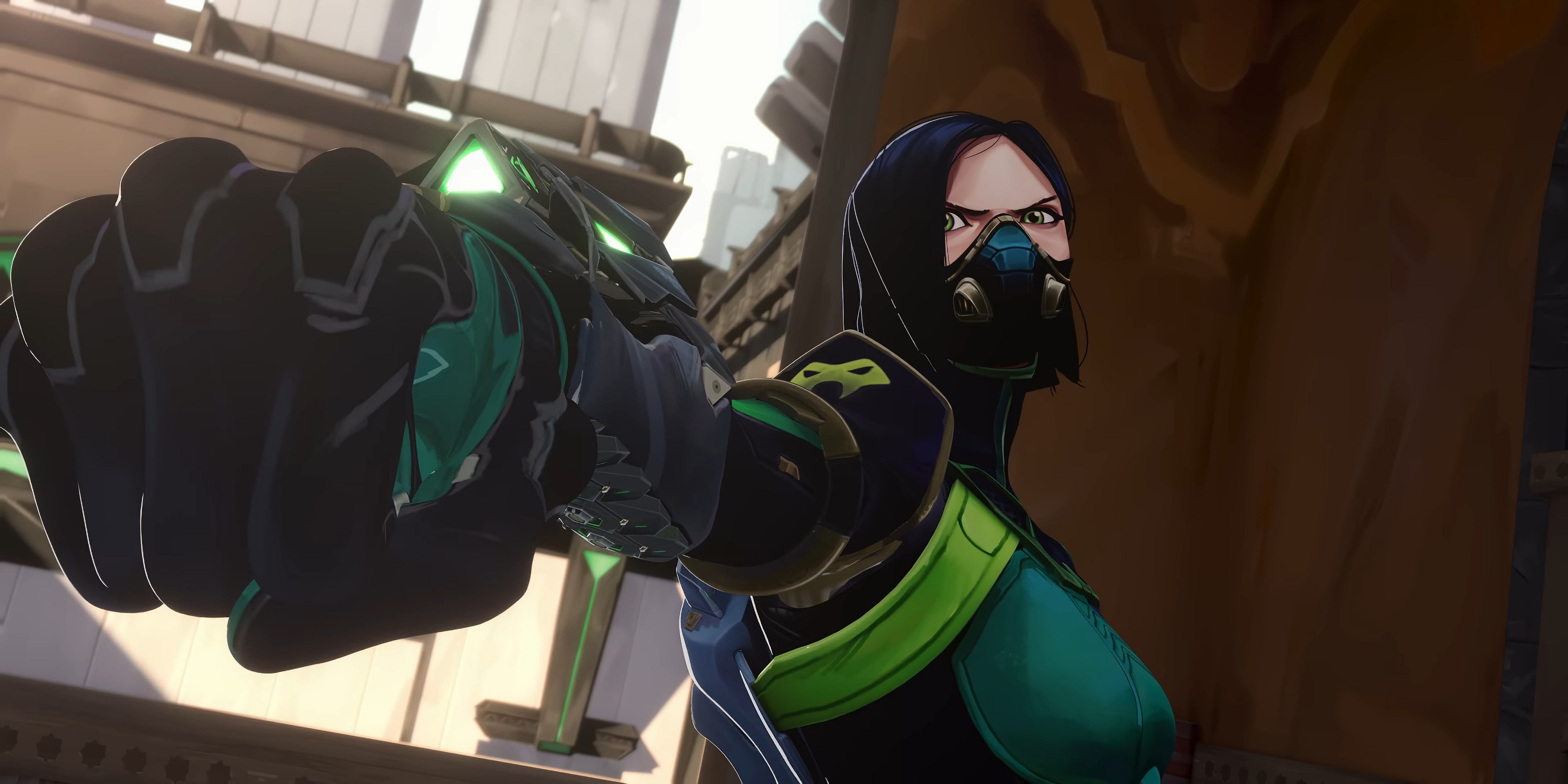‘Valorant’ Threatens Hardware Bans Against Players Who Engage In “Egregious” Trash Talking: “We Won’t Miss You”

In response to growing concerns regarding the concept of in-game trash talking, the development team behind Riot Games’ Valorant has announced that they will now be taking punitive action against any and all players who engage in the behavior to an “egregious” degree.
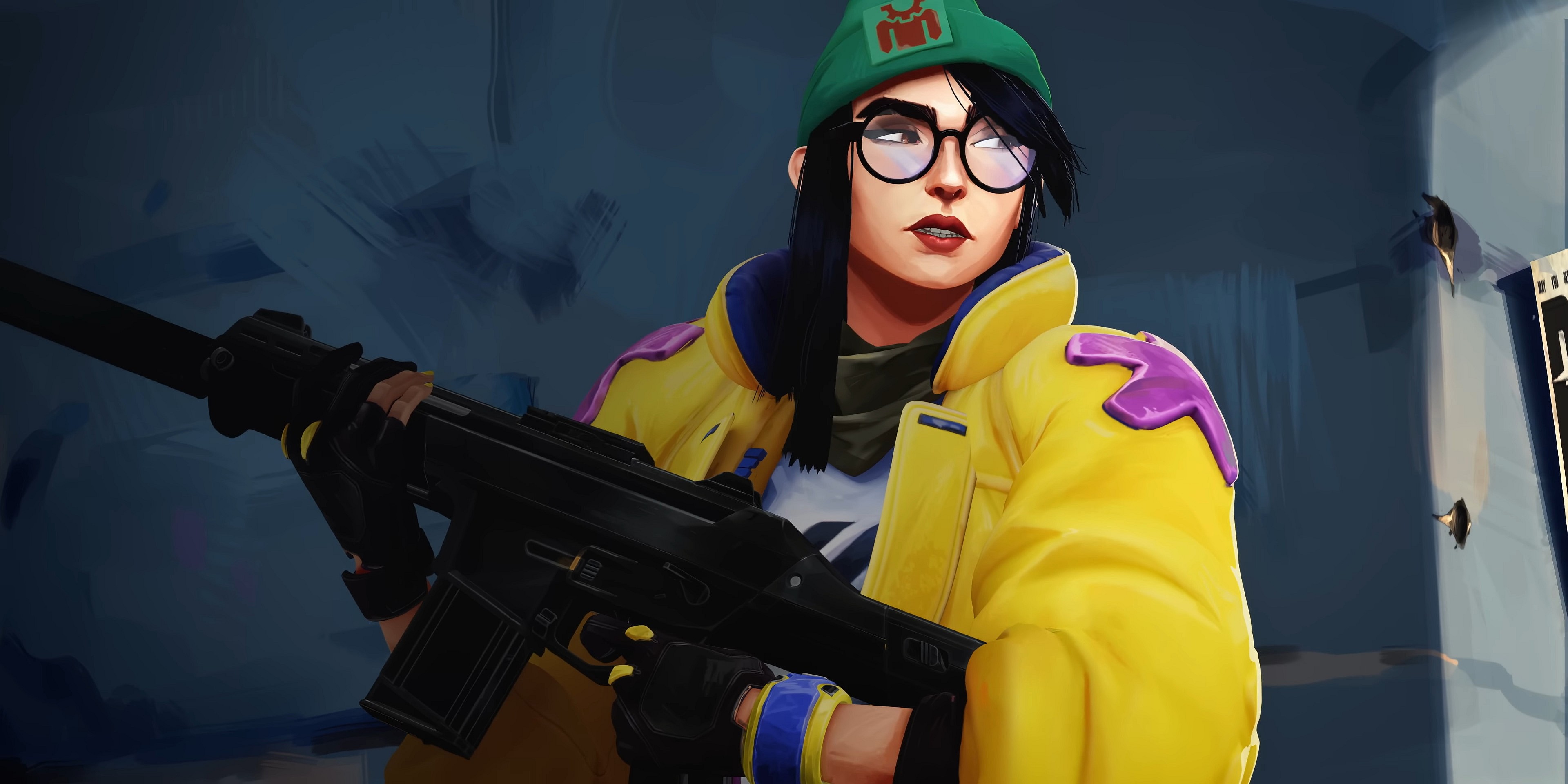
RELATED: Riot Games Confirms ‘Valorant’ Agents Raze And Killjoy Are In Romantic Relationship
This new player policy was first revealed to the public on May 30th courtesy of Valorant studio head Anna Donlon via a recorded developer update published to the game’s official YouTube channel.
Beginning her message with a particularly diatribe regarding Riot’s outlook on the topic, Donlon informed players, “Since launching Val, especially with the addition of voice comms, we’ve known that fighting in-game harassment was going to be both something we needed to prioritize, and also would be one of the most challenging issues that we would face.
“We’ve been working on systems and technologies, and we actually have been making a lot of progress,” she added. “But having large global player communities presents unique challenges. Evolving challenges.”
Moving to offer clarification on these “challenges”, the studio head then revealed, “I’ve spent the last couple of weeks reviewing player logs, looking at penalty escalation paths, discussing player behavior philosophies, seeing where they’re working and where we absolutely need to do better. It’s not the first time I’ve had to do this. It will not be the last.”
“It’s important work, but it’s not always easy work,” she continued. “I’m a human and a parent and a caregiver and a team lead, and in almost every aspect of my life, I feel this deep responsibility to protect people. And this is no different. The responsibility of protecting our community of Valorant players is one I take it very personally, and I can tell you that very often it can feel like we’ve, like I’ve, failed in that responsibility.”
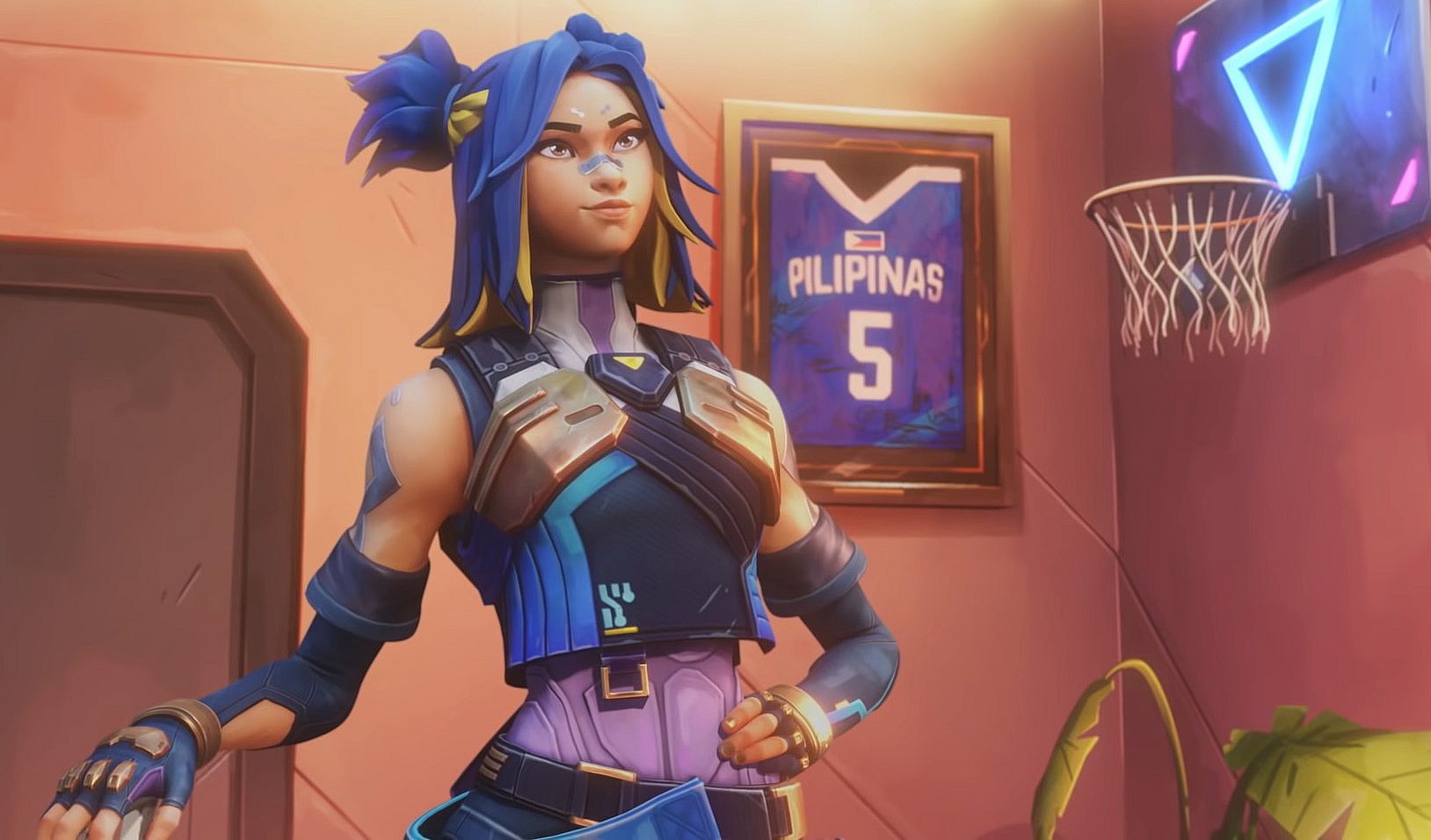
Following the admission that “player behavior is a complex problem space,” Donlon moved to assure Valorant‘s player base that “Riot always taken this [topic] seriously.”
“That’s been true ever since we launched League of Legends, but at the end of the day, there are still some people in this world who want to take out their insecurity or their bad day, or their hate or their whatever on some stranger through their computer screen,” she lamented. “So we work harder. We take steps forward.”
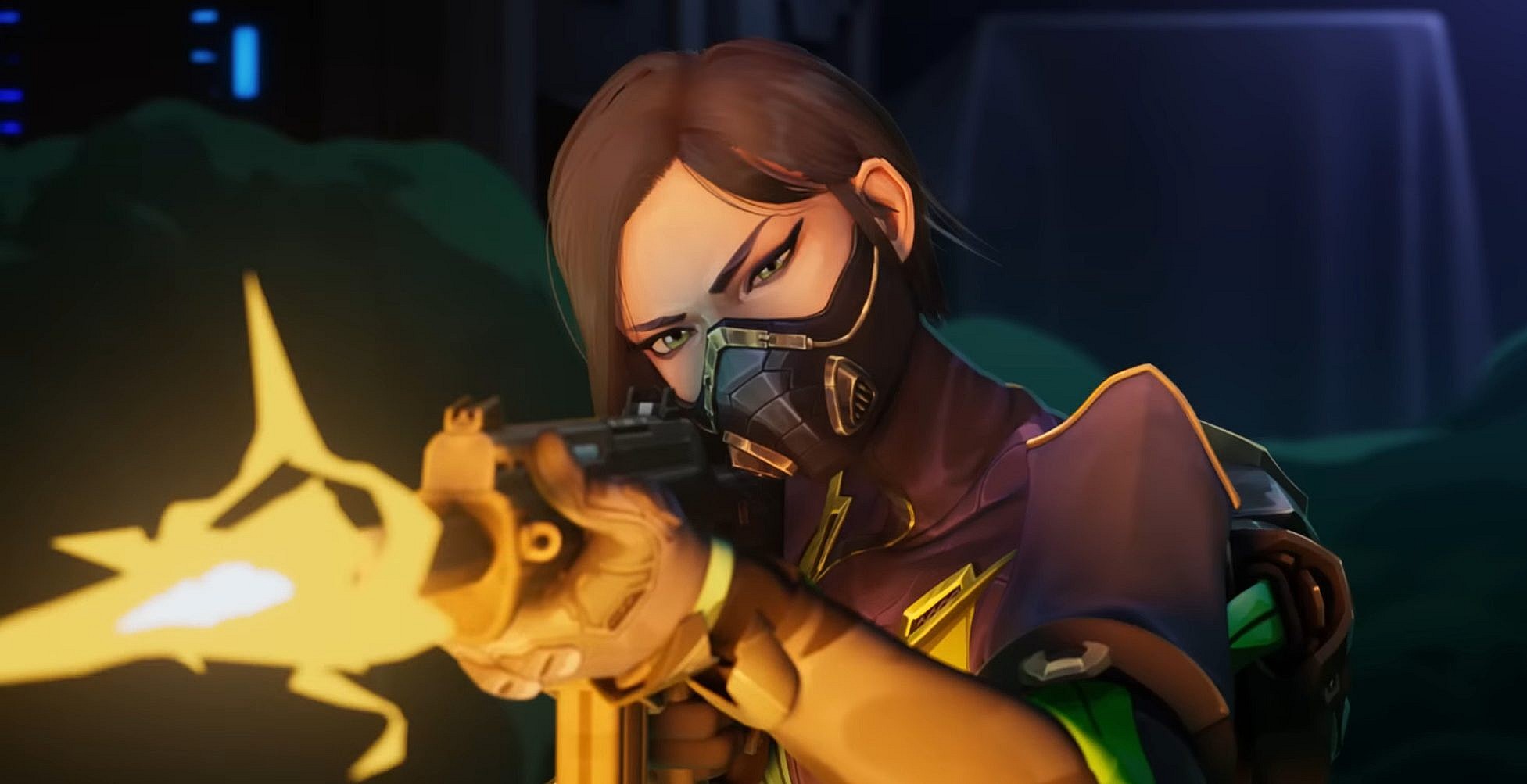
RELATED: Valorant Designer Backpedals After Using Racial Slur ‘Filipinix’ In Reference To New Agent Neon
Further bolstering her appeal-to-emotion, the studio head then asserted, “But here’s the part I can’t shake: In almost all cases, someone gets hurt in the process of making these systems better.”
“Too often it takes someone experiencing the worst behaviors – something egregious, something painful, something threatening for us to better understand where the gaps in our systems and processes are,” affirmed Donlon. “And that’s exactly what we’re experiencing and addressing right now.”
“I also want to make sure that I say this out loud,” she added. “We have no room for these types of behavior in our game or in our community. VALORANT is a team game. It’s better played as a team. The strats are better. All of it’s better.”
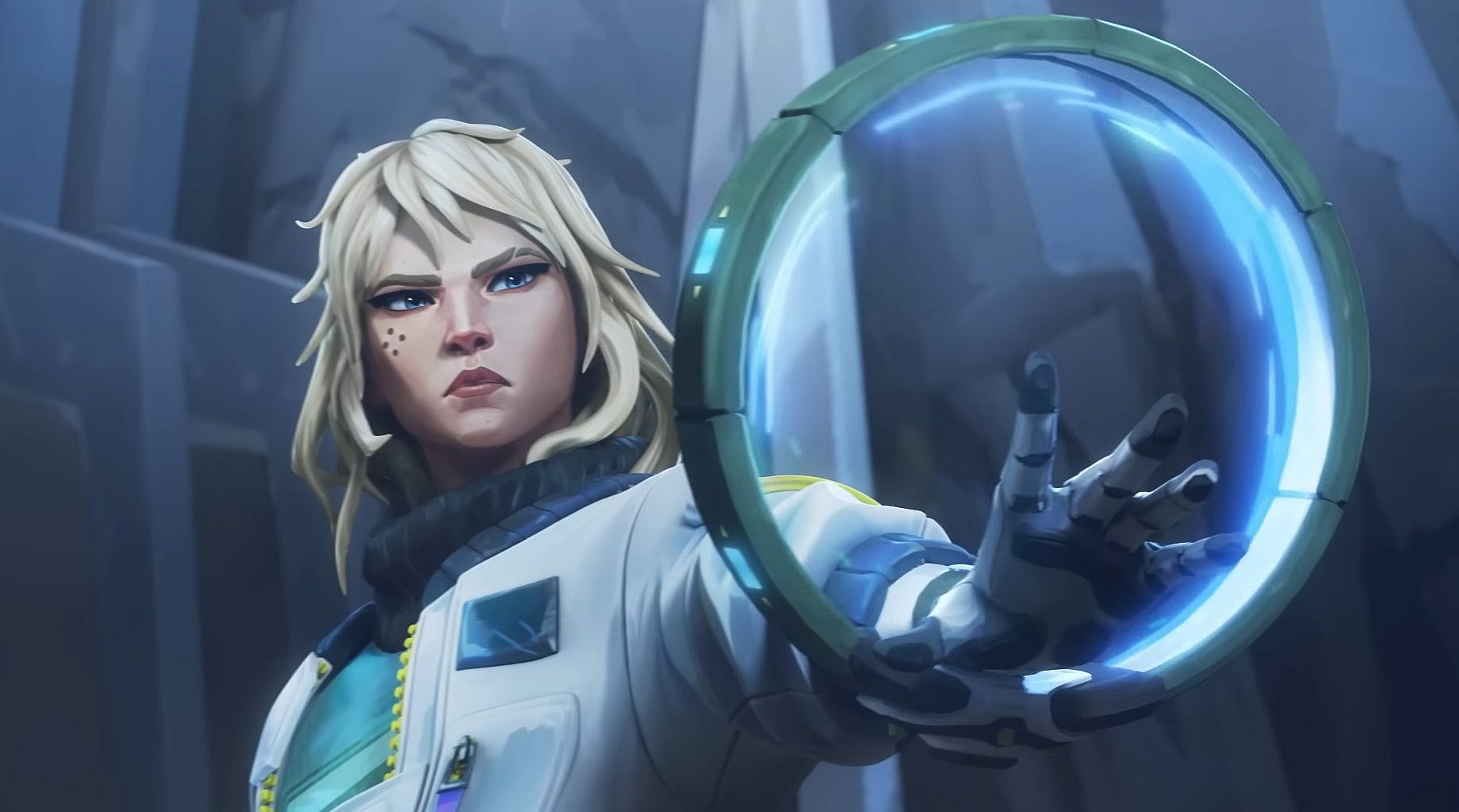
Moving to address the regularly raised argument that players who do not wish to engage with trash talk should simply mute those who do, Donlon declared, “When you tell someone to ‘just mute comms’ to avoid harassment, you are essentially putting the harassed person in a position to not communicate, to compromise how they want to play the game
to accommodate you.”
“Muting is a tool for people who choose to use it, not something that is there to justify bad behaviors,” argued the studio head. “Competitive games need to have room for banter. We believe this, and I do understand the fear. The fear that we will sanitize gaming by over addressing these issues. We have no interest in doing that. That’s not what we’re talking about here. But we do believe that a person should not be in a position to have to grow a thicker skin, or whatever.”
“There’s no room in our community for the most egregious behaviors, and we’re not going to compromise on that point,” said Donlon. “If you need to make truly evil statements under the guise of regular s–t talk to enjoy gaming, then please play something else. We won’t miss you. Val community, we can’t stop them from opening their mouths and saying something awful – I wish we could, but we can’t stop that part – what we can do is help escort them out of our game spaces.”
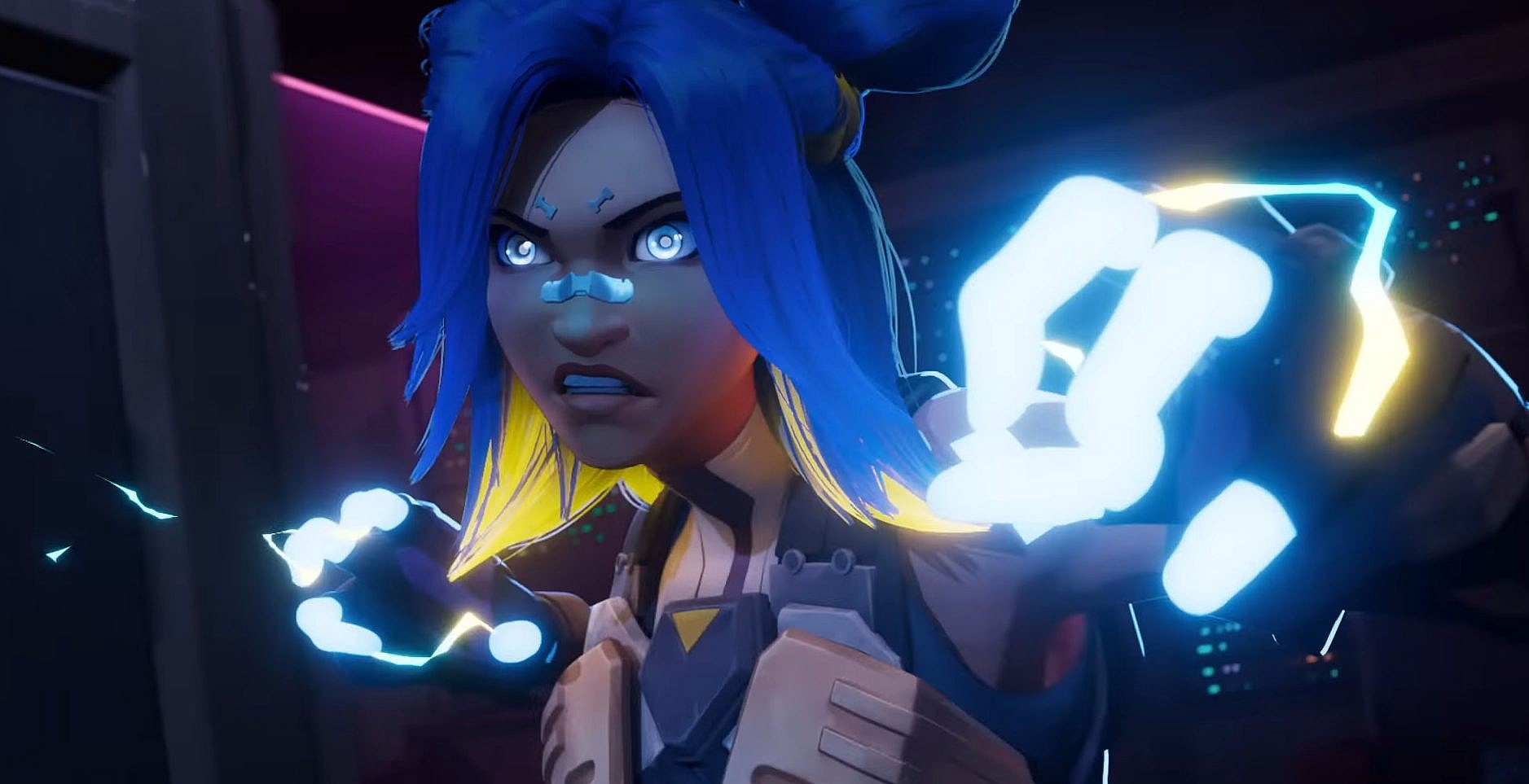
To this end, Donlon explained that Riot would be undertaking four specific tasks to help them achieve their goal of ‘cleaning up’ Valorant‘s voice chat:
- “First, over the next 30 days we’ll be finalizing updates to our existing policies. This will allow us to issue more severe penalties and faster with a focus on the most severe behaviors. Things like hate speech, severe sexual content, and threats of violence which have no room in our game. And we will continue to adjust those categories when and where it’s needed.”
- “Second, we need stronger tools to deal with a broader spectrum of harmful player behavior, and so we’re introducing new actions. This will include penalties ranging from temporary bans to permanent bans, all the way up to and including hardware bans for our worst offenders. Hardware bans are an extreme form of punishment, so we will apply them only in the most extreme cases with clear evidence and manual review, similar to how it works with anti-cheat right now.”
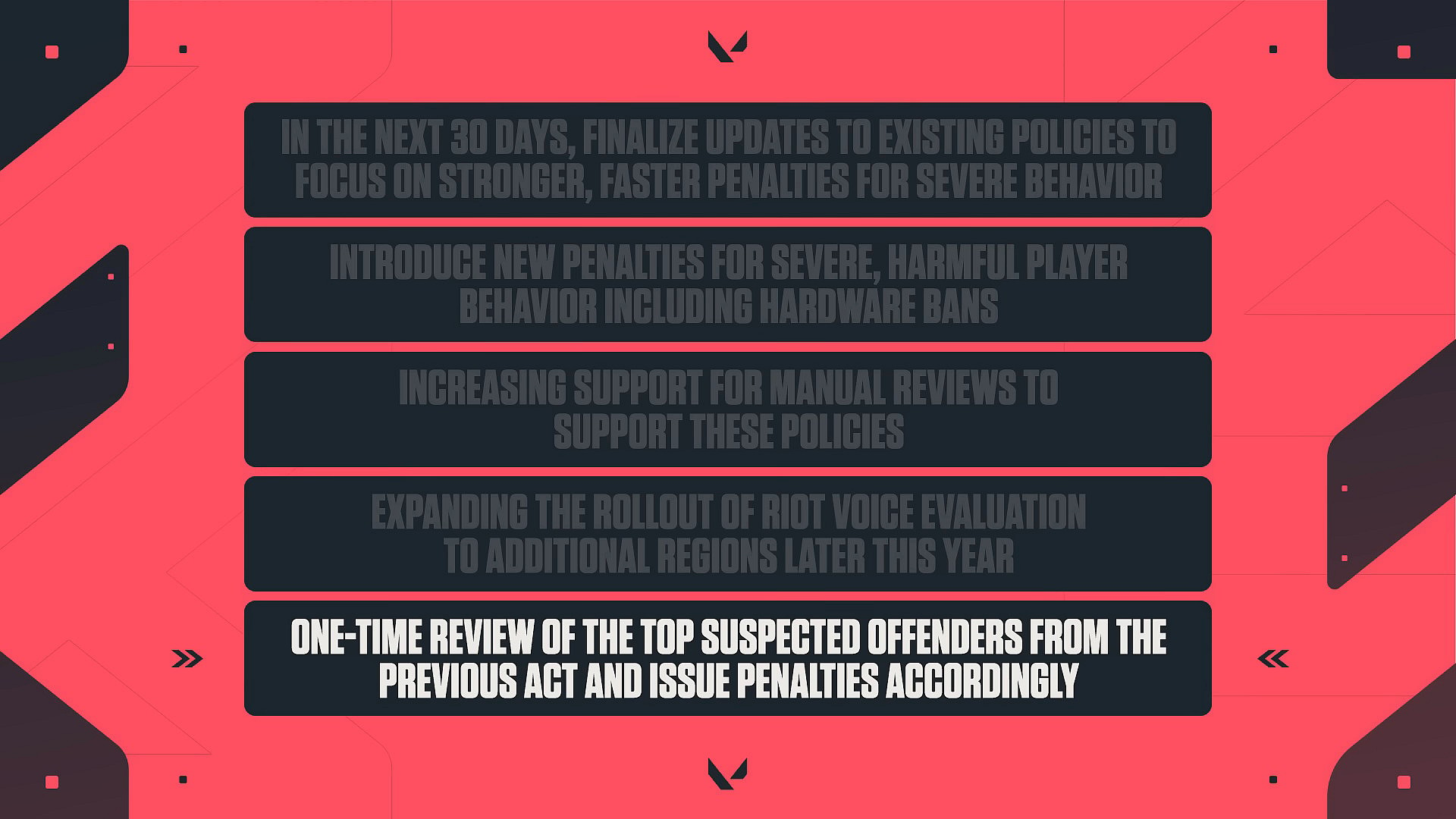
- “Third, because we’re making these changes, we anticipate there’s going to be more reports that will require manual review, so we’ll be beefing up the teams that are needed to support that.”
- “Fourth, we’ve been testing Riot Voice Evaluation systems in North America in English only for a while now. It’s still in beta, but it’s been working really well so far. Players who have been actioned upon by RVE have not re-offended at a 75% rate. This reduces the overall number of repeat offenders by a great deal. We’re looking to roll this out to more regions later this year, adding support for additional languages while also taking into account local regulations on player safety and privacy.”
- “And lastly, we’re going to go back and perform a one time review of the top suspected offenders from the previous act and issue penalties accordingly. It’s important to us that you can trust us with this, that when you get feedback from a report that you can trust that something happened in a timely manner and with the right severity.”
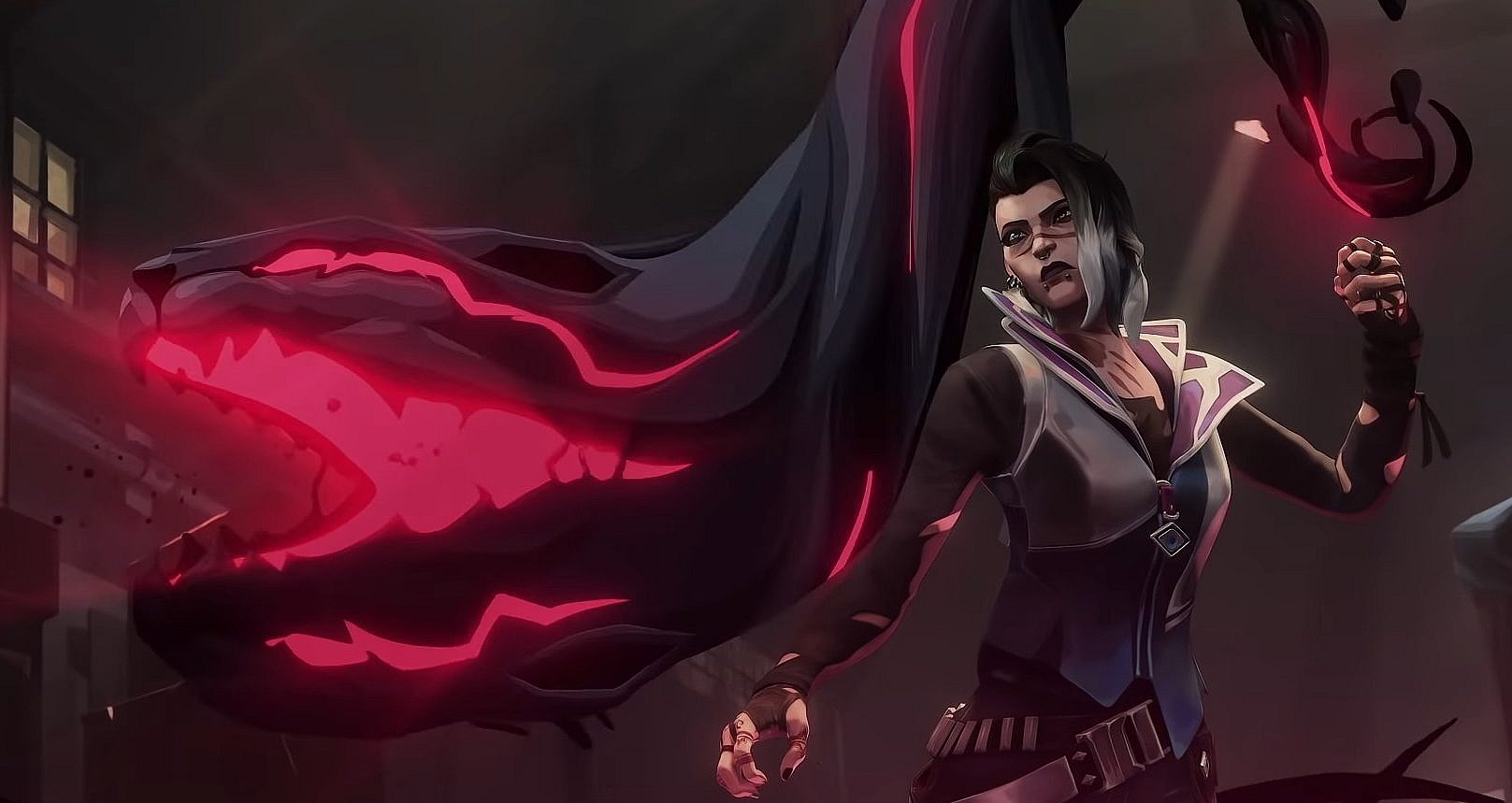
Drawing her message to a close, Donlon opined, “I’m hopeful that these updates should be a positive step in earning that trust, and I don’t think we should stop there. Penalties and punishments. They do work after the fact, but we do think there are ways that we can be more proactive. Investing in systems and designs that create an environment where things like comms harassment are less likely to happen in the first place.”
“Look, I know this message is intense,” she ultimately concluded. “So let me say this: This is not just about preventing the worst. The goal is to make it so that the people who want to play Val are able to love playing Val. It’s about promoting the best in each of us. It’s about ensuring that people can share in the joy of the matches won and the tough losses, and the amazing feeling of community.”
